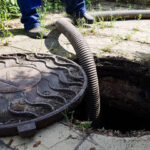Home » Articles posted by Cassandra Roberts
Author Archives: Cassandra Roberts
Why Real Estate Agents Are Important
Cochrane Real Estate Agents wear many hats. They are educators, counselors, and financial advisers. They also serve as marketers, promoting properties to attract potential buyers.
When interviewing an agent, casually mention a property that recently sold or bought in your area and gauge how in touch they are with the local market. A knowledgeable agent will respond promptly with details.
When you are buying or selling a property, you will want to work with a real estate agent who is professional and courteous. They should be able to explain the process and answer any questions you might have. They should also have a thorough understanding of the local market, including the prices for homes in your desired neighborhood. In addition, they should be able to provide you with information on lenders, mortgage rates, and other important aspects of the homebuying or selling process.
To become a real estate agent, you must complete state licensing requirements. These requirements vary from one state to the next, but most require that you take a series of real estate courses and pass a real estate exam. Once you have your license, you can begin working with clients to help them buy or sell property. Many real estate agents choose to take the next step in their careers and become licensed brokers. To become a broker, you must be an agent for a certain period of time and take additional real estate courses.
Online reviews can help real estate agents build their business by attracting new customers and boosting customer retention. However, it’s important to manage your online reviews efficiently. To do so, you need to have a system in place that monitors review platforms and allows you to easily manage your responses.
Whether you’re searching for restaurants, hotels, or other local businesses, chances are you check out their online reviews before making a decision. Reviews can help you decide if a company is trustworthy and helpful, as well as determine their reputation in the community. To be a successful real estate agent, you need to have positive online reviews and a strong reputation in the community. You can build your reputation by focusing on providing a high level of service to your clients and establishing yourself as an expert in the industry. You can do this by posting valuable content on your social media channels and by actively engaging with customers. You can also improve your online visibility by partnering with a reputable review management tool.
Knowledge of the Local Market
The real estate landscape is rife with complexities, from zoning regulations to legal requirements and financing options. Local market knowledge empowers agents to navigate these intricacies with finesse, ensuring smooth sailing throughout the home-buying journey.
Real estate agents are constantly assessing the market. This includes analyzing historical pricing trends, property values, and upcoming development projects. They also look at demographics, prevailing economic signals, and seasonal fluctuations to inform their recommendations for buyers. Their insights help clients make informed investment decisions that align with their future goals and aspirations.
In addition, local market knowledge can be leveraged to create targeted marketing campaigns for properties. Agents know which platforms to advertise on, the best language and imagery to use, and the optimal timing for listing properties. They can even recommend specific neighborhoods to their clients based on their unique needs and preferences.
Buying a new home is more than just a transaction; it’s a major financial investment and a significant part of one’s identity. As a result, it’s important to work with an agent who has intimate knowledge of the community. This knowledge enables them to help their clients find the perfect home for their budget and lifestyle.
In the competitive marketplace of St. Louis, real estate agents with extensive local knowledge have a distinct advantage over their competitors. They understand the city’s unique culture and its diverse neighborhoods, from the historic brick architecture to thriving business districts and lush parks. This allows them to match their clients with properties that will best suit their lifestyles and meet their investment objectives.
In addition, local market knowledge can be leveraged for networking and referrals. Agents who are active in their communities can connect with reputable local services and off-market listings that aren’t publicly available. This can bypass bidding wars and enable clients to obtain their dream homes at reasonable prices. Local connections also provide valuable insights into the market, including upcoming zoning changes, infrastructure projects, and other factors that could impact property values in the near future. These insights can give clients a competitive edge in negotiations and allow them to plan ahead for their future real estate needs.
Reputation
Real estate agents must be able to demonstrate their trustworthiness and integrity. This is especially important because buyers rely on agents to assist them in finding and purchasing a home, a highly significant investment. Many potential home buyers conduct extensive research before deciding on an agent to work with. This often includes scouring social media, websites and personal agent pages for reviews on an agent. A positive reputation is one of the key reasons why real estate agents should be active on review sites.
The best way to build a good reputation is to ask for feedback from your clients. If you do this, be sure to provide detailed information about the transaction. This will help your clients understand the value of your services and encourage them to leave a positive review. It is also a good idea to follow up with your clients after they have left a review. This shows that you care about the satisfaction of your customers and are committed to providing high-quality service.
In addition to asking for feedback, it is important to build a strong network of professionals. This will allow you to expand your business and find new leads. You can do this by attending industry events and fostering relationships with other real estate agents. It is also a good idea to stay updated on the local market trends and changes.
One of the biggest pitfalls that real estate agents can fall into is overpromising and underdelivering. This can cause a client to lose trust in the agent and ultimately opt for going it alone. To avoid this, make sure to prioritize your clients’ needs, listen attentively and work diligently to achieve their goals.
Another important aspect of a real estate agent’s reputation is their ability to negotiate. This is a crucial skill for any real estate professional to have because it allows them to help their clients get the most bang for their buck. If you are looking to hire a real estate agent, it is important to look for one with a solid track record and a strong network of professional connections.
Experience
The real estate market is a complicated one, requiring in-depth knowledge of a broad range of issues. This includes a thorough understanding of the current trends in the industry, as well as local market conditions. A good real estate agent can help their clients make informed decisions about buying or selling a property, as they can provide them with accurate property valuations and comprehensive market analysis.
Another important skill that real estate agents must possess is the ability to negotiate on behalf of their clients. This involves understanding their clients’ needs and expectations, as well as assessing their financial capabilities. A successful negotiation can lead to a more favorable outcome for both parties involved in the transaction.
Having a wide range of contacts in the industry also helps real estate agents improve their services. For instance, they can refer their clients to reputable mortgage lenders and home inspectors. They can also collaborate with other agents to offer their clients a broader array of options. This is vital, as most real estate transactions involve multiple steps that may require coordination between several parties.
Many factors can influence a real estate transaction. From interest rates and mortgage availability to unique purchasing tactics and a changing market, buyers and sellers face a variety of challenges throughout the process. Experienced real estate agents can anticipate and resolve these problems, ensuring a seamless and timely closing.
In addition, a real estate agent can help their clients save money by negotiating discounts on their behalf. This is particularly helpful for first-time buyers who might not be familiar with the pricing and terms of the market.
The real estate industry is constantly evolving, and the most skilled agents understand how to leverage technology to enhance their business. They can use online platforms to list properties, schedule viewings and conduct market research, as well as use apps that help them keep track of their transactions. This enables them to deliver better customer service and increase their revenue potential.
When choosing a real estate agent, it is crucial to find one with a proven track record and extensive knowledge of the local market. It is also recommended to interview multiple agents and check their credentials, referrals, and commission rates before making a decision.
HVAC Systems and Ductwork
HVAC systems work to regulate the temperature of any building. They warm structures in the winter and cool them in the summer.
The most common types of hvac consist of split systems and packaged units. The former uses an indoor unit containing the evaporator coil and blower, while the latter uses a compressor. Visit https://www.taphvac.com/ to learn more.
 HVAC systems are essential for commercial and residential buildings, including single-family homes, apartment buildings, hospitals, and skyscrapers. They are used to keep indoor air comfortable and healthy for occupants. This means providing regulated temperatures, adequate ventilation, and filtration of pollutants, smoke, dust, odors, and other materials. HVAC systems also control humidity, making it easier to breathe in hot weather and colder weather.
HVAC systems are essential for commercial and residential buildings, including single-family homes, apartment buildings, hospitals, and skyscrapers. They are used to keep indoor air comfortable and healthy for occupants. This means providing regulated temperatures, adequate ventilation, and filtration of pollutants, smoke, dust, odors, and other materials. HVAC systems also control humidity, making it easier to breathe in hot weather and colder weather.
Heating systems in hvac generate heat to raise interior temperatures during the winter. They use gas furnaces, boilers, or heat pumps to do this. They may distribute warm air through radiators, underfloor heating, or ductwork, depending on the property and its layout. Many heating systems can also regulate the temperature of individual rooms or zones using a central system console.
In the summer, HVAC systems are used to cool a building. They use the same principles as air conditioners, but with different hardware. The evaporator coil in the furnace is filled with refrigerant that is at a low pressure. When the evaporator coil comes into contact with warmer, humid air, it changes from a liquid to a gas. The cooled air is then blown into living spaces through air ducts.
Ventilation systems in hvac include fans and filters to circulate and condition indoor air. They remove odors, smoke, heat, and other gases, and they reduce carbon dioxide levels to prevent deprivation of oxygen. They can also remove moisture, which helps with humidity control. They can also remove particulates, such as dust, dirt, mold spores, and pollen, from the air.
Most modern HVAC systems are highly efficient and can help a homeowner save on energy bills. This is due to improvements in technology and better understanding of how they work. For example, new thermostats have advanced settings that allow homeowners to monitor and control their energy usage. They can also minimize energy bills by focusing on keeping occupied rooms at the right temperature and avoiding wasteful cooling or heating of unoccupied spaces. The team at Galooli can help a home or business owner understand their energy needs and select the best systems for them.
Cooling
The cooling component of hvac systems works by removing heat and humidity from indoor air and expelling it outside. This happens via a system of coils filled with a substance called refrigerant. Cooling is accomplished through a variety of methods, including radiant, convection and conduction. Ultimately, all HVAC systems have one goal in mind: to create comfortable environments for the building’s occupants.
The evaporator coil in the furnace is a key component of your home’s cooling system. Housed within the furnace, it’s a small, circular piece of metal that absorbs heat from passing warm air and releases cooled air into your home through ductwork. While the evaporator coil is doing its work, a fan blows through the ducts to move the cooled air throughout your home.
Like the heating component, the cooling system also operates according to basic thermodynamic principles. The laws of thermodynamics state that heat can only travel in three ways: radiation, conduction and convection. Radiation is when heat transfers through light energy, such as sunlight. Conduction is when heat moves through solid materials, such as a pan being heated on a stove burner. And convection is when hot air rises and circulates throughout the room.
As for the cooling system, it is composed of a series of components that are linked together by copper tubing. This tube is a crucial link that allows the refrigerant to flow between an indoor unit and an outdoor unit. The evaporator coil in the air conditioner, housed inside the furnace, is a key component of the cooling system. It’s a circular piece of metal that, when exposed to air, becomes a liquid. The refrigerant is then changed back to a gas by changing its pressure. This process takes place over and over as the refrigerant moves between indoor and outdoor units.
Aside from the coils and ductwork, most cooling systems also use filters to keep indoor air clean. Regularly changing the filter can help prevent dust and debris from accumulating in the ducts, which can reduce airflow and lead to other issues. Additionally, a facility engineer should perform routine inspections of the equipment to identify any potential problems early on.
Ventilation
The ‘V’ in HVAC stands for ventilation, and it is one of the most important aspects of keeping a space comfortable and healthy. Ventilation allows fresh air to enter spaces and remove stale, stale-smelling air. It also helps to control humidity, temperature, odors, smoke, dust, mildew and bacteria in the air.
The air quality inside a home or business can be affected by a variety of factors, including the weather, the number of occupants and other outside pollutants. Proper ventilation is vital for regulating indoor air quality (IAQ), and it can reduce the risk of mold, mildew and other harmful substances in the air.
Ventilation is accomplished in a wide range of ways, from natural to mechanical. In the past, homes, schools and offices had easy access to the outdoors through doors and windows, but today’s tightly-sealed buildings require more efficient mechanical systems to bring in and exhaust stale air.
While there are many different types of ventilation systems on the market, all systems should be able to achieve the same basic goal: to move a sufficient amount of air into and out of the building to provide a fresh supply of outdoor air while removing stale, contaminated indoor air. This process should be carried out using a filtration system that can remove viruses, dust and other harmful particles from the air.
It’s possible to get a good idea of the ventilation needs of a building by having an evaluation conducted by an experienced professional. This will involve tools like blower door tests and air quality monitors to determine the rate of air flow needed for proper ventilation, based on a calculation of a building’s size, occupant numbers and local climate conditions. Alternatively, DIY evaluations can be conducted by monitoring the rate of airflow through vents and by using calculation guidelines provided by organizations like ASHRAE.
Ventilation is important for maintaining comfort, health and safety, as well as improving energy efficiency. It is essential to have all ventilation ducts unobstructed, and all openings should be clear of equipment and storage items that restrict airflow. In addition, a clean condenser unit will operate more efficiently and prevent excessive wear and tear on the system.
Ductwork
Ductwork is one of the most important parts of your HVAC system. Its job is to deliver conditioned air to each room in your home. Its quality significantly affects your comfort and energy costs. It also influences the overall performance of your hvac unit. If your ductwork is old, damaged, or inefficient, your HVAC system will struggle to perform optimally.
A well-designed duct system is essential to guarantee even temperature distribution throughout your home or building. Its size is determined by calculating the necessary airflow for each space it serves, and it must be properly placed to ensure good airflow. It must also be insulated and sealed to reduce heat loss.
Your ductwork contains two major components: the supply plenum and the return plenum. The supply plenum transports air to your rooms with air vents, while the return plenum takes air from the air vents back to your central HVAC system.
The primary type of ductwork used in homes is sheet metal ducts, which are made out of rust-resistant galvanized steel or aluminum. They are durable, easy to clean, and non-porous. However, they can develop leaks if their joints and seams aren’t correctly sealed. This is why it’s important to have your ductwork assessed and sealed regularly.
Another common problem with ductwork is static pressure, which refers to how much resistance the air faces when it circulates through the ducts. High static pressure can cause your blower to wear out prematurely and lead to poor indoor air quality. It can also force your heating system to work harder than necessary, which can increase energy costs.
Lastly, ducts can be blocked from airflow by furniture, boxes, and other items that are placed in front of the vents or registers. This can cause the air to cool or warm rapidly in that area and prevent proper ventilation. It is crucial that your ducts are properly sized and installed, and they should be regularly cleaned to eliminate dust, dirt, and allergens. Regular maintenance and insulation will improve the longevity of your ductwork.
Dental Care – How to Keep Your Teeth and Mouth Healthy and Fresh For Longer
 Dental care includes cleaning your teeth and mouth to avoid dental diseases and bad breath. Good oral hygiene practices can help keep your teeth and mouth healthy and fresh for longer. It is essential to brush and floss regularly, which will help to keep bacteria and food particles away from your teeth and gums.
Dental care includes cleaning your teeth and mouth to avoid dental diseases and bad breath. Good oral hygiene practices can help keep your teeth and mouth healthy and fresh for longer. It is essential to brush and floss regularly, which will help to keep bacteria and food particles away from your teeth and gums.
Having good oral health is important for a bright smile and a pain-free mouth. Those who practice good oral hygiene from an early age will likely enjoy fresh, healthy breath for years to come. Even if you have a dental problem, modern dentistry will minimize the pain you feel while visiting a dentist.
To maintain good oral health, brush your teeth at least twice a day with fluoride toothpaste and floss. It is also important to regularly rinse your mouth with an antiseptic mouthwash. You should also visit the dentist for a checkup every six months, so they can evaluate your teeth and recommend treatments for your specific situation. A few warning signs of dental problems include tooth pain, bleeding gums, loose teeth, and chronic bad breath. Often, these problems can be easily treated with proper dental treatment. Additionally, improving oral health can improve your overall health.
Good oral health is important for speaking, eating, and expressing your emotions. It can even affect your self-esteem. Most oral diseases are preventable and treatable at an early stage. These diseases range from cavities to gum disease to oral cancer, and they cost the government billions of dollars annually. By using good oral hygiene techniques, you can reduce your risk of developing the disease and keep it from progressing.
Periodontal disease can weaken the bone that supports your teeth, and without proper dental care, you can experience many complications. Even an untreated tooth abscess can spread to other parts of the body, causing sepsis. It is essential to have good oral health throughout your life, especially if you are a diabetic.
While you cannot choose to visit the dentist every single day, it is important to make an appointment with a dentist once a year to check for cavities and other dental issues. Regular visits to the dentist will keep your teeth healthy and prevent the need for repairs or extractions. It is also important to see a dentist for dental sealants and fluoride treatments. A dentist will teach you proper brushing techniques for a healthy smile. If you can’t afford dental insurance, consider getting an alternative insurance plan.
In addition to brushing and flossing, a dentist will perform X-rays of your teeth. These x-rays will show your dentist if you have any hidden cavities or problems with your gums. They may also show whether you have receding gums. Healthy gum pockets are between one and three millimeters deep.
A fluoride treatment can help prevent cavities and prevent gum disease. Fluoride strengthens tooth enamel and helps fight cavity-causing bacteria. Similarly, an antibiotic may be prescribed to help treat an infection or tooth abscess. The doctor can give you a mouth rinse or gel to use afterward. You can also ask your dentist for a fluoride gel if you’re prone to bad breath. However, don’t forget to see your dentist on a regular basis.
While you’re visiting the dentist, don’t be afraid to ask questions. The dentist will usually answer any questions you might have and will try to minimize any pain you feel. Moreover, he’ll also check the condition of your teeth and gums so he can recommend the best treatment options. Remember that the more you brush and floss your teeth, the healthier your mouth will be.




